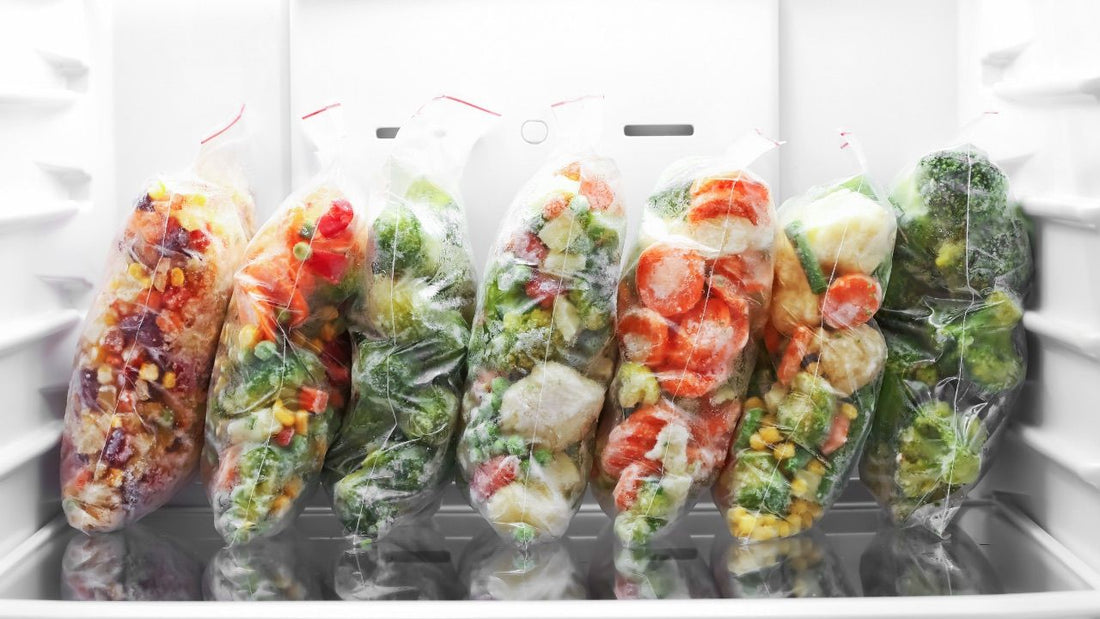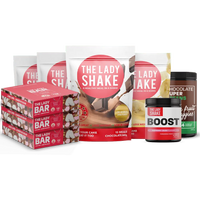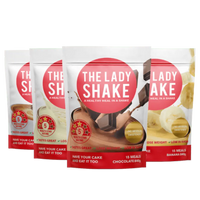
Nutrients In Vegetables: Fresh, Frozen Or Canned?
Share
Vegetables are essential in a healthy balanced diet due to their rich nutrient profile providing multiple health benefits. They’re packed with essential vitamins and minerals crucial for maintaining optimal health. They are high in dietary fibre, rich in antioxidants and typically low in calories – a weight loss journey’s best friend!
We’ve got some tips on how you can save money on produce, and rest assured, it is possible to lose weight on a budget! But let’s explain the nutritional science behind fresh, canned and frozen because they all have their pros and cons.
Fresh
Fresh vegetables often contain the highest levels of certain vitamins and minerals, but more so when they’re consumed shortly after harvest, and how can we know how long the veggies took to get from the paddock to our pantry?
Pros
-
Potentially higher nutritional profile
-
No added preservatives or sodium
Cons
-
Nutrient degradation especially for vitamins C and B over time
-
Short shelf-life leading to waste
-
More expensive than canned or frozen
Frozen
Frozen veggies are typically snap-frozen meaning their nutrients are preserved pretty well! Making them not so dissimilar to fresh veggies, and depending on the time it takes from harvest to on your plate, they could provide even more nutrition.
Pros
-
Cheaper than fresh
-
Long shelf-life without nutrient loss
-
Convenient and ready to use, reducing prep time
Cons
-
May contain added salts or sauces – but you can eliminate this con by checking the nutritional information on the back of the packet!
Canned
Nutrient levels may be slightly lower than fresh or frozen due to heat used in the canning process, but nutrients like fibre remain stable or may even increase in availability.
Pros
-
Extended shelf-life
-
Accessible all year round
-
Cheaper than fresh
Cons
-
May contain added sodium, sugar or preservatives – again, check the back of the can!
-
Texture and taste may differ from fresh or frozen
Takeaways
Frozen veggies are just as, if not more nutritious than fresh vegetables! Fresh veggies lose nutrients quickly after storage, so unless you grow your own, it’s hard to tell how much nutritional value your store-bought veggies provide.
Frozen veggies offer a perfect balance of nutrition and convenience, and they’re cheaper than fresh. Canned veggies are a great option for convenience, and still provide nutritional value, but frozen is your best bet to save money and reap the benefits of veggie goodness.
Not a fan of veggies? You’re not alone. We are well aware that far too many of us don’t get our recommended five servings a day so we’ve got the perfect product for you! If you haven’t tried it already, give our Chocolate Super Greens a go!
One serving is equivalent to five servings of vegetables that will supercharge your immune system, boost energy levels, improve gut health, and tastes like chocolate.






